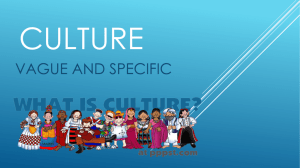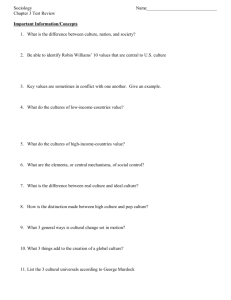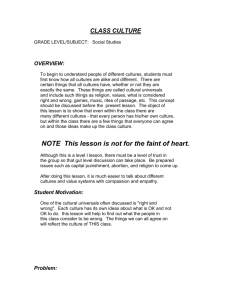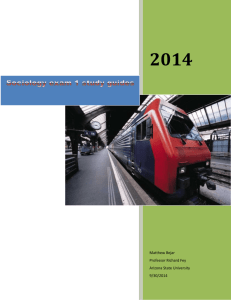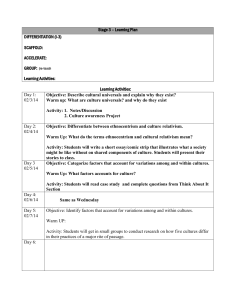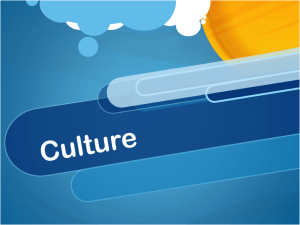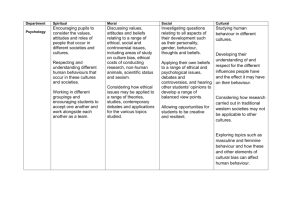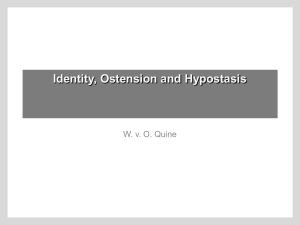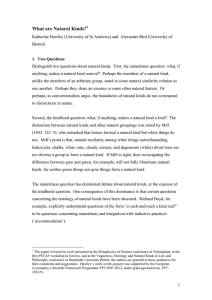Culture
advertisement
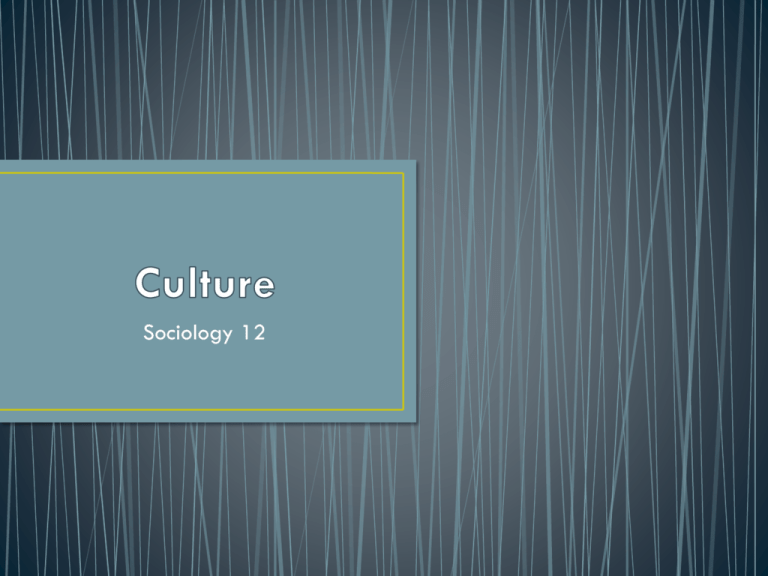
Sociology 12 2.1 demonstrate an understanding of the concept of culture 2.2 analyze factors related to cultural variation 2.3 analyze factors related to cultural uniformity 2.4 investigate the process of cultural change • Why is this thing so difficult to define??? Culture is the combined thoughts, attitudes, and beliefs of a group of people who tend to live in the same geographic area. Although cultures begin within specific geographic locations, they can spread across the globe due to voluntary or forced migration. Culture is expressed through a variety of methods including dress, language, religion, music and food. Food Geography Language Religion Dress Architecture Music • • • • • • • Maple Syrup, Lobster & Blueberry Grunt Rocks & Ocean Yeahohyeah & Sonyer Lapsed Baptist Jeans & Hoodies Huge, old houses with the Lunenburg Bump & Widow’s Walks Bluegrass & East Coast tunes • Create your own!! An “I am…” poem is a poem that is all about you and the things that you are. This particular “I am…” poem is going to be about your cultural identity. Using the starter “I am…” finish the sentence with something that describes you in terms of your culture, how you define yourself. • I am from clothespins, from Clorox and carbon-tetrachloride. I am from the dirt under the back porch. (Black, glistening, it tasted like beets.) I am from the forsythia bush the Dutch elm whose long-gone limbs I remember as if they were my own. I'm from Artemus and Billie's Branch, fried corn and strong coffee. From the finger my grandfather lost to the auger, the eye my father shut to keep his sight. Under my bed was a dress box spilling old pictures, a sift of lost faces to drift beneath my dreams. • I'm from fudge and eyeglasses, from Imogene and Alafair. I'm from the know-it-alls I am from those moments-and the pass-it-ons, snapped before I budded -from Perk up! and Pipe down! leaf-fall from the family tree. I'm from He restoreth my soul with a cottonball lamb and ten verses I can say myself. Get something to write on and something to write with and create your own “I am…” poem. Be sure to think about the tower of cultural expression (but feel free to write about what you feel is culturally relevant to you) : Food Geography Language Religion Dress Music Architecture 8-10 lines, no more than 15 please! Be prepared to share! Anonymously or not? This is formative assessment, so I will be collecting these. Cultural Stereotypes, or National Character? Are generalizations about national groups just caricatures? • Anyone brave enough to share? • Culture is essential for our individual survival and our communication with other people • Also essential for the survival of societies • “the common denominator that makes the actions of individuals intelligible to the group” • Laws, rules, norms… • What determines your likes, dislikes, and personality characteristics? • Your genetic makeup or your environment? • We are not born knowing how to treat other people • People often think that our kindness or hatred toward other people is “just human nature” • What we do is determined by nurture, rather than nature • Nurture: our social environment • Nature: our biological and genetic makeup • Nature V Nurture Debate • People often think human nature is instinctive • Instinct: a biologically determined behaviour pattern common to all members of a species that predictably occurs whenever certain environmental conditions exist • Spiders building webs • My rat terrier chasing shrews and mice • Humans do not have instincts • What we tend to think of as instinctive behaviour is actually reflexes and drives • Reflex: a biologically determined involuntary response to some physical stimulus • A sneeze after breathing in pepper through the nose • Blinking when dust gets in your eye • Drive: a biologically determined impulse common to all members of a species that satisfy needs such as sleep, food, water, or sexual gratification • These do not determine how people behave in society; even the expression of these biological characteristics is channeled by culture • The appropriate way to sneeze (an involuntary response) is to use a tissue or turn away from others (a learned response) • We sleep on mattresses • Culture helps us survive in society since we don’t have “instincts” to tell us what to do • Culture is a “tool kit of symbols, stories, rituals, and world views, which people may use in varying configurations to solve different kinds of problems” • The tools we choose vary according to our personalities and each specific situation • Our “Cultural Toolbox” is divided into 2 major parts: • Material Culture: consists of the physical or tangible creations that members of a society make, use, and share • Trees, books, houses, clothes, music, • It is our buffer against the environment • (shelter protects us from the environment & provides privacy) • Nonmaterial Culture: the abstract or intangible human creations of society that influence people’s behaviour • Language, beliefs, values, rules of behaviour, family patterns, political systems • Nonmaterial culture is based on beliefs • Beliefs: the mental acceptance or conviction that certain things are true or real • These beliefs may be based on tradition, faith, experience, scientific research or some combination of these • Faith in a supreme being • Conviction that education is the key to success • Opinion that smoking causes cancer • All humans face the same basic needs • Food, clothing, shelter • We engage in similar activities that contribute to our survival • Cultural Universals: customs and practices that occur across all societies • Appearance, activities (sports, games, visits), social institutions, customary practices • These cultural universals are present in all cultures • Joking is a universal practice • Yet their specific forms vary: • from one group to another • from one time to another within the same group • What is considered a joke in one society may be an insult in another • Cultural universals ensure the smooth and continual operation of society • The self-interest of individuals must be balanced with the needs of society as a whole • Cultural universals help fulfill these functions of society • Cultural Universals are not the result of functional necessity • They have been imposed by members of one society on members of another • Religion is a cultural universal • Traditional religious practices of indigenous peoples have often been repressed by subsequent settlers or conquerors • Sociological Question to keep in mind: • Who determines the dominant cultural patterns? • Cultural Universals group activity • “What’s for dinner?” • Nature Vs Nurture in Nature • Nature Vs Nurture & Homosexuality • The specifics of individual cultures vary widely, but all cultures have 4 common non-material cultural components: • • • • Symbols Language Values Norms • These components contribute to both harmony and conflict in a society • Anything that meaningfully represents something else • A set of symbols that express ideas and enable people to think and communicate with one another • Collective ideas about what is right or wrong, good or bad, and desirable or undesirable in a particular culture • Established rules of behaviour or standards of conduct
